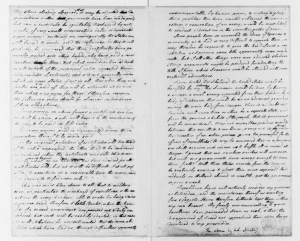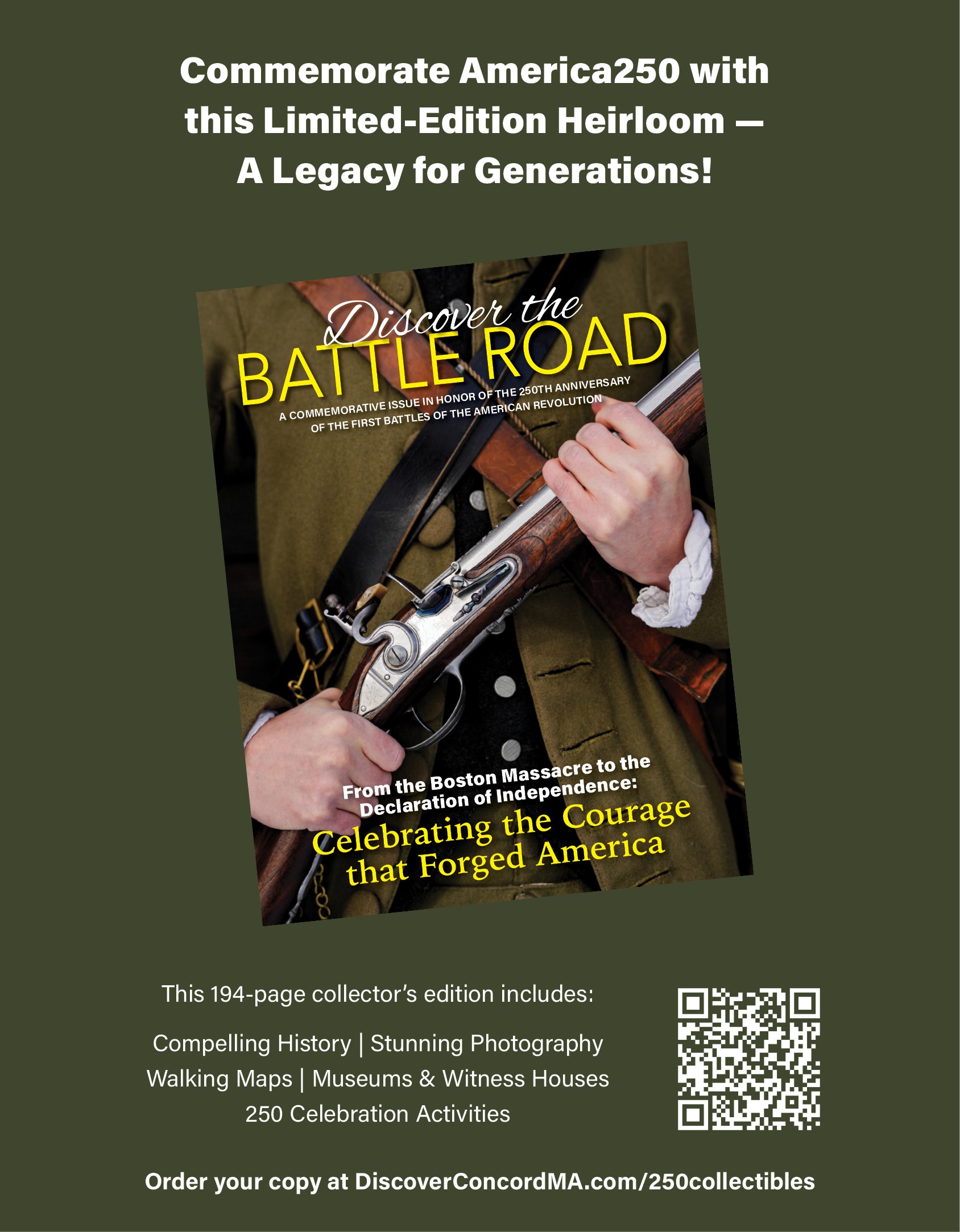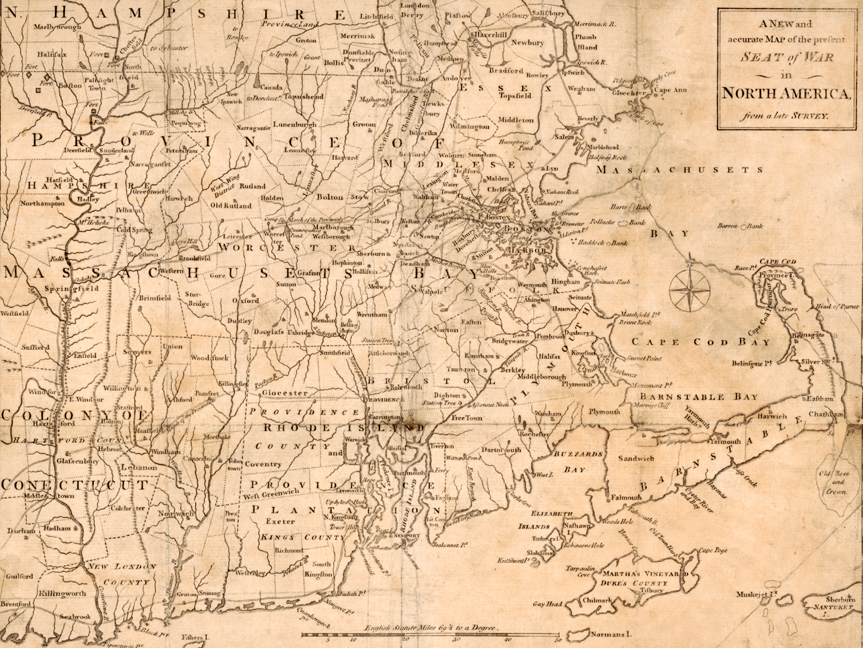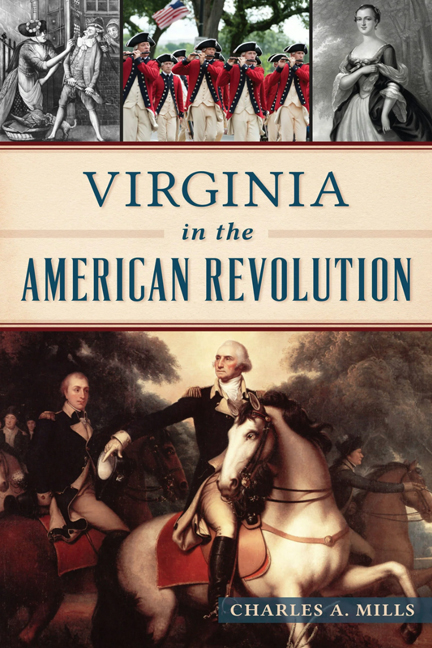
If not for a single unfortunate letter that Colonel Lewis Nicola of the Continental Army addressed to Commander-in-Chief General George Washington on May 22, 1782, this accomplished soldier and scholar would be entirely unknown today. Regrettably, this simple letter has subsequently been wildly misinterpreted by historians, and Nicola today is best remembered as the man who allegedly offered to crown King George Washington. In the process, a committed patriot, a dedicated soldier who although senior in age served throughout the War for American Independence in the cause of his adopted nation and strived to impart his military knowledge to the fledgling Continental Army, and a brilliant man of the enlightenment on a par with Benjamin Franklin, Thomas Jefferson, and Dr. Benjamin Rush, has in large measure been lost to history.
Lewis Nicola was a second generation Englishman, as his paternal grandparents were French Huguenots who had fled to Ireland to avoid persecution. His grandfather, Jean Nicola, was a Captain in the British Cavalry; and his father, Charles Nicola, was a Coronet in the British Dragoons at his birth. Nicola was born in Dublin, Ireland in 1717, growing to adulthood in the sizeable and prominent Huguenot community of Dublin. Almost nothing is known of Nicola’s youth, except that he was fluent in at least French and English, and apparently also benefited from instruction in Latin. At the age of 23, he purchased an Ensigncy in Major General Alexander Irwin’s Regiment of Foot (subsequently numbered the 5th Regiment of Foot). For the next fourteen years he served as an officer in various British regiments of Foot on the Irish establishment, his only active service being limited to a two-month deployment to Flanders in 1745, during which he saw no combat action. By 1754 Nicola remained a Lieutenant, and with few opportunities for further advancement, he resigned his commission and became Fort Major (an administrative civil post) in Ireland. Between 1754 and 1767 he served as Fort Major for Fort Charles, in Kinsale and Duncannon Fort in Wexford, Waterford Harbor. With a large family, and apparently dissatisfied with his prospects trapped in relatively minor and obscure administrative posts, as so many had before him, in 1767 Nicola determined to emigrate to Pennsylvania Colony in North America to improve his fortune.[i]
Nicola and his family embarked aboard the Speedwell from Cork Harbor on May 28, 1766; and they arrived safely in Philadelphia after a lengthy voyage on August 29th. Although nearly fifty years old and possessed of considerable military and administrative experience, Nicola proved to be an unsuccessful businessman. His only real commercial success came with his establishment of a General Circulating Library in Philadelphia, of over one thousand volumes, doubtless based upon Nicola’s extensive personal library, and including “a few well chosen French books.”[ii] The success of this library introduced Nicola to the more educated and literate men in Philadelphia. In 1768, Nicola presented a paper on fishes to the American Society, one of two competing Philadelphia philosophical organizations, and was accepted as a member.
When the societies merged to form the American Philosophical Society on January 2, 1769 “for promoting useful knowledge”, Nicola was among the founding members. Throughout 1769 Nicola regularly attended meetings of the society.[iii] On April 22, 1769 he presented a paper to the new society entitled “An Easy Method of Preserving Subjects in Spirits.”[iv]
That year, Nicola also published a classic gentleman’s magazine of the times, The American Magazine or General Repository. Within it, Nicola included a range of transactions and papers from the American Philosophical Society. Even with the patronage of the society, Nicola’s foray into the publishing business was short-lived, and the magazine only survived for a year. Still, as a modern observer has assessed, “During the fateful years 1767-1771, when the American revolution was gathering headway and men’s minds seemed absorbed with politics, the modern system of scientific communication was evolved by the…colonial philosophers… in Lewis Nicola’s magazine… was born the first learned journal of the Western Hemisphere- one that still promotes useful knowledge from Philadelphia.”[v] Lewis Nicola was very much a man of the enlightenment, was both enthralled and fascinated by the natural world, and had a deep commitment to expanding his personal, and through his efforts at documentation and dissemination, public knowledge of all things scientific, philosophical and celestial.
When hostilities erupted between the thirteen United Colonies and the mother country in the spring of 1775, Nicola offered his services to the Pennsylvania Council of Safety. Although by now 58 years old and obviously too senior for active field service, Nicola possessed 27 years of British Army experience, particularly in the administration and management of military installations and fortifications. Such experience was scarce, and quite valuable, in Pennsylvania. Initially appointed to a Committee to “inspect” the defenses of the Delaware River, Nicola made a number of recommendations that contributed to the establishment of the defenses that would seriously delay the British Army and Royal Navy two years later. He also designed a Powder Magazine for the city.
Recognizing that the fledgling Continental Army was woefully deficient in military training, skills and knowledge, Nicola used his French literacy to translate two military treatises into English:
– Treatise on Military Service of Light Horse and Light Infantry (Philadelphia: Robert Bell, 1777); and
– The Field Engineer (Philadelphia: R. Aitken, 1776) – a translation of the engineering work The Field Engineer by the classically trained French Military Engineer Chevalier de Clairac.[vi]
Although the Treatise on Military Service of Light Horse and Light Infantry was a relatively straight forward translation with little commentary by Nicola; his treatment of The Field Engineer displayed Nicola’s comprehensive knowledge of military art and science through numerous footnotes, to include such disparate topics as bridge construction, fortifications, platoon firings, and artillery employment. In one instance, he filled in information that was missing from de Clairac’s original work. In another case, he displayed his intimate familiarity with the renowned French Marshall Maurice de Saxe and his published works. Nicola also related that he had visited the battlefield of Fontenoy in Flanders (fought in Flanders during the War of Austrian Succession on May 11, 1745) shortly after that engagement.[vii]
In 1776, he also prepared an entirely new and independent manual of military drill and exercises, A Treatise of Military Exercise.[viii] Although there were a number of such British military manuals, Nicola was one of only two such treatises specifically prepared for the Continental Army at the time.[ix] Nicola’s efforts were carefully considered, eliminated frivolous maneuvers “more calculated for show than utility in the day of battle,” and were specifically developed for an American army. He also stressed expertise in military drill, a unified system of military maneuvers, and he emphasized that officers must display forbearance, understanding and respect for their soldiers.[x] In many ways, Nicola’s manual anticipated many of the core components of the Baron de Steuben’s more famous and considerably more influential Regulations for the Order and Discipline of the Troops of the United States.[xi] Steuben would certainly have agreed with a letter that Nicola wrote to Brigadier General Edward Hand from Philadelphia on May 26, 1781: “I look on discipline as the life of an army, and that it cannot be supported without due subordination.”[xii] However, Nicola never served with the fighting regiments of the Continental Army, and thus did not have an opportunity to personally instruct the army in his system, and he also lacked the great influence of Inspector General possessed by Steuben.[xiii] Finally, Nicola also attempted to evaluate the influence that the peculiar topographical and human terrain of North America would have upon military operations, by preparing a brief study on “The Utility of Light Troops.”
Tomorrow: Nicola prepares a one-of-a-kind map
[i] File #1, Lewis Nicola Biography, Clifford Lewis Papers, Society of the Cincinnati, Washington, D.C.; and Lewis Nicola Diary, 1740-1797, Copy in File #2, Clifford Lewis Papers, Society of the Cincinnati, Washington, D.C.
[ii] Whitfield J. Bell, Jr. “Colonel Lewis Nicola, Advocate of Monarchy, 1782, A paper Read at the Washington Birthday Luncheon, Philadelphia Society of the Cincinnati, Philadelphia, Pa, February 21, 1983,” Society of the Cincinnati Library, Washington, D.C.; and Whitfield J. Bell, Jr., Patriot Improvers: Biographical Sketches of Members of the American Philosophical Society, Volume 2: 1768; Memoirs of the American Philosophical Society, Volume 227 (Philadelphia: American Philosophical Society, 1999), 54-56.
[iii] A Member of the Society, “Propagating Useful Knowledge from Philadelphia,1768-1771, A Commemorative Essay” in Early Transactions of the American Philosophical Society, Published in the American Magazine, During 1769; Memoirs of the American Philosophical Society, volume 77 (Philadelphia: American Philosophical Society, 1969), 129; and Early Proceedings of the American Philosophical Society, 1744-1838 (Philadelphia: McCalla & Stavely, 1884), 24, 32, 43 ,44, 46.
[iv] Lewis Nicola, “An Easy Method of Preserving Subjects in Spirits” Transactions of the American Philosophical Society 1 (January 1, 1769-January 1, 1771), 244-246.
[v] A Member of the Society, “Propagating Useful Knowledge from Philadelphia, 1768-1771, A Commemorative Essay” in Early Transactions of the American Philosophical Society, Published in the American Magazine, During 1769; Memoirs of the American Philosophical Society, volume 77 (Philadelphia: American Philosophical Society, 1969), 131.
[vi] Bell, “Colonel Lewis Nicola, Advocate of Monarchy,” and Bell, Jr., Patriot Improvers, 57. Copies of both of these translations are in the Society of Cincinnati Library, Washington, D.C.
[vii] Lewis Nicola, translator, The Field Engineer (Philadelphia: R. Aitken, 1776), 108, 165, 177, 178, 184-185, 185-186, 186, 193, 197, 235.
[viii] Lewis Nicola, A Treatise of Military Exercise, Calculated for the Use of the Americans, In which everything that is supposed can be of use to them, is retained, and such measures, as are only for show and parade, omitted. To which is added some directions on the other points of discipline (Philadelphia: Stymer and Cist, 1776). Copies of this manual are in the Society of Cincinnati Library, Washington, D.C.
[x] James R. McIntyre, ed., A Treatise of Military Exercise By Lewis Nicola (The Nafziger Collection, 2009); and James R. McIntyre, “Easy Plans: Revolutionary War Drill Manuals of Lewis Nicola and Timothy Pickering” American Revolution magazine, vol. 1, number 1, January 2009, 70-73.
[xi] Joseph R. Riling, Baron Von Steuben and His Regulations (Philadelphia: Ray Riling Arms Books, 1966).
[xii] Lewis Nicola to Edward Hand, Philadelphia, May 26, 1781, Sol Feinstone Collection, David Library of the American Revolution, Washington Crossing, Pennsylvania.
[xiii] Although it should be noted that Nicola reviewed and made recommendations to Steuben’s Regulations in 1779. Joseph R. Riling, The Art and Science of War in America, A Bibliography of American Military Imprints, 1690-1800 (Alexandria Bay, New York and Bloomfield, Ontario: Museum Restoration Service, 1990), 14.










2 Comments
Loved your article. Just finished reading and transcribing Nicola’s 1776 Treatise of Military Exercise; Nicola was thinking ahead, and your comparison of him to Steuben is apt.
And what warmed my heart: your use of Baron “De Steuben”! Yes! No one in the Congress or the Continental army “vonned” him during his lifetime. I have an article in preparation that supports the “Stew-bin” pronunciation as well. The mystery is where the “Von SHTOYBEN” came from and how it multiplied…
Do we know where Col. Nicola was during June 1779? I’m looking through Pennsylvania Archives Series I, Volume XII, and he writes to President Reed a few times about deserters from the newly acquired British posts at King’s Ferry, but he is signing them T. M. (I’m assuming Town Major) so was he receiving these deserters in Philadelphia or with the army in the Highlands?